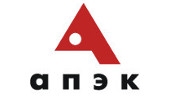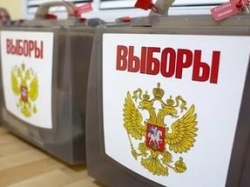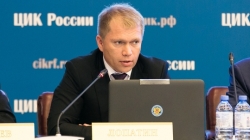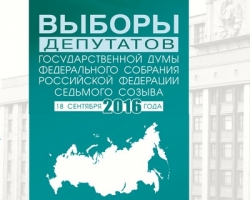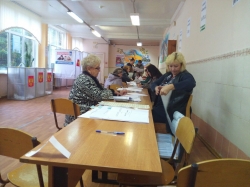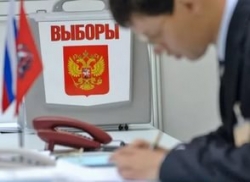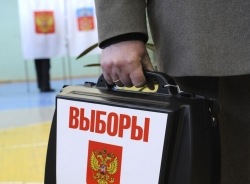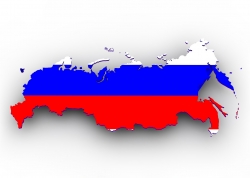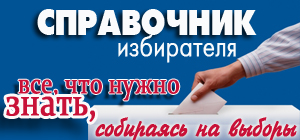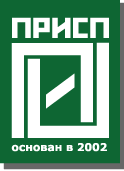First DECLARATION of the Civil Control Association on the monitoring of 6-th State Duma of Russia parliamentary elections - first stage of electoral agitation
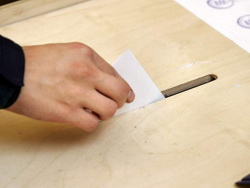
DECLARATION
of the Civil Control Association
on the monitoring of 6-th State Duma of Russia parliamentary elections and
of regional and municipal elections, held on December 4, 2011
(calling of the elections, nomination and registration of federal candidates lists,
first stage of electoral agitation)
of the Civil Control Association
on the monitoring of 6-th State Duma of Russia parliamentary elections and
of regional and municipal elections, held on December 4, 2011
(calling of the elections, nomination and registration of federal candidates lists,
first stage of electoral agitation)
The 6-th State Duma of the Russian Federation parliamentary elections were called on December 4, 2011 by the Presidential Decree of August 29, 2011 #1124 “On Fixing the Date of the State Duma Parliamentary Elections”. The decree was published in the Russian Newspaper of August 30, 2011. On that day the electoral campaign started.
The Civil Control Association officially started monitoring the elections.
Elections to 27 regional legislative assemblies will be held on the same date. Candidates stand for 1210 seats in regional assemblies. 662 regional MPs will be elected through proportional system, and 548 MPs through majority system. Around 38 mln. voters are expected to participate in these elections – over one third of the total number of voters.
Altogether around 2800 elections and local referendums will take place on December 4, 2011, in 77 regions of Russia.
Contestation of the Presidential Decree Fixing the Date of the Elections
In the beginning of the campaign a group of citizens gave a press-conference on September 8, 2011, in the International Press Center (Moscow). They told about their suit to the Supreme Court of Russia in which they asked the Court to find the Decree illegal, because it violated their constitutional rights. The key argument of the suit was “the absence of statutory conditions, guaranteeing direct and equal suffrage, which contradicted the Constitution of Russia and international legal norms. It also violated the right of people to elect and to be elected in the State Duma”. The applicant party believes that the law violates their rights, because it states that parliamentary elections are held only through proportional electoral system, and the absence of majority system violates the foundations of the constitutional system. The principle of direct suffrage, in their opinion, correlates to the majority or to the combined (majority-proportional) election system.
The Civil Control Association completed expert analyses of the press conference materials and international acts, mentioned by the applicant party. The experts were unanimous in their opinion that international acts, signed by the Russian Federation, as well as other international acts, do not oblige Russia to choose any particular election system. The principle of direct suffrage, mentioned by the applicant party, means that citizens vote for or against a candidate, or a list of candidates, directly; their choice is unmediated. All seats in one of the national parliament chambers have to be taken as a result of competition between candidates or lists of candidates at national elections. Such understanding of direct suffrage is set by the CIS Convention for Democratic Elections, Electoral Rights and Freedoms Standards (Article 4), signed on October 7, 2002 in Chisinau and ratified by the Federal Law of July 2, 2003, #89-FZ. It is also set by the Code of Good Practice in Electoral Matters (Clause 4), adopted by the Venice Commission (European Commission for Democracy through Law of the Council of Europe) at its 52nd session in Venice, 18-19 October 2002. Federal Law “On the Basic Guarantees of Electoral Rights and the Right for Referendum” (Article 6) has similar construction of the abovementioned principle. Moreover, the Code of Good Practice in Electoral Matters states directly that “within the respect of the above-mentioned principles, any electoral system may be chosen” (Clause 4).
The expert analysis shows that proportional electoral system perfectly fits all the criteria of the electoral system constitutionality, set by the Constitutional Court of the Russian Federation.
Anyway the applicants do not contest the clauses of the Federal Law “On the State Duma Deputies Election”, setting the proportional electoral system, which allegedly violates their rights. They contest the Presidential Decree “On Fixing the Date of the State Duma Parliamentary Elections” – a legal act which gives start to the election campaign.
The Civil Control Association pays particular attention to the fact that if the head of the state refused to sign that Decree that would lead to the violation of the principles of regular and obligatory elections, set by all the abovementioned acts and by the Federal Law “On the Basic Guarantees of Electoral Rights and the Right for Referendum” (Article 9). This would lead to massive violations of electoral rights of people. The applicants did not take that into account.
The Evaluation of the Elections’ Democracy Level Put Forward Before the Electoral Campaign Had Begun
The characteristic feature of this State Duma parliamentary election campaign is the multiple claims of unregistered political parties and civic movement representatives that the coming elections are nondemocratic and illegal. Similar allegations could be heard from some international organizations representatives and European Parliament MPs. These claims could be heard as early as March 2011 – 9 months before the elections.
When the PARNAS political party filed its documents for registration to the Ministry of Justice of the Russian Federation,
its members used such claims in order to blackmail the Ministry. They alleged that if the party wasn’t registered, the elections would automatically become illegal.
The Civil Control Association believes that such declarations are made in order to attract people’s attention to their authors. We are sure that any evaluation of the elections made in advance can not be regarded as an expert evaluation, because it isn’t based on real expert and analytical research and can not reflect the true level of compliance with democratic standards. We declare that it is intolerable to make such allegations which undermine people’s trust in elections.
Calls for Refusals from Exercise of Constitutional Rights
Another characteristic feature of this campaign is a number of the so called political and public figures who call citizens to refuse from exercising their constitutional right to elect. They invite people to boycott elections, to damage voting ballots, not to use absence ballots etc. The Civil Control Association mentions that similar calls were heard at the previous campaigns, but this time activists have created a special social movement, called “NAH-NAH” (“Ain’t Give a Shit: Vote Against Them All!”). The manifesto of this movement calls people to crisscross the ballot, to put ticks in all graphs and to put it like this into a ballot box.
We would like to warn that there can be two possible legal outcomes of such ‘votation against all parties’. 1. If the number of damaged ballots is over 40% elections will be considered null and void. This result seems very improbable, because several months ago the founders of this movement failed to establish a political party – the number of possible party members was less then 0.05% of the total number of Russian voters. 2. If the number of damaged ballots is less then 40% elections will be considered legal, and the damaged ballots will be divided between the parties which enter the State Duma proportionally to the number of their own ballots.
That is why we are sure that such calls are nothing but misinformation of voters, aimed at their refusal from the constitutional right to elect their representatives in legislative state bodies. We believe such claims are unacceptable and we will continue informing voters of the possible outcomes of such actions.
Nomination and Registration of Federal and Regional Candidates Lists
The Central Election Commission of the Russian Federation set up deadlines for nomination of federal candidates lists in accordance with the Federal Law “On the State Duma Deputies Election”. The lists had to be nominated from September 9, 2011 till September 29, 2011. The deadline for presenting federal candidates lists to the Central Election Commission of the Russian Federation was September 29, 2011.
According to the electoral legislation of the Russian Federation 7 political parties, registered by the Ministry of Justice, have the right to participate in the parliamentary elections. The list of these parties was presented by the Ministry of Justice of Russia.
All political parties had their conventions within the time limits, set up by law. There was a consistent pattern of setting up the convention dates – political parties, which do not have their representatives in the Parliament, decided to have their conventions as early as possible. They probably wanted to have more time for voters’ signatures collection. Parties which are presented in the Duma do not have to collect signatures, so they had their conventions as close as possible to the deadline.
“Patriots of Russia” have the smallest number of candidates on their lists – 309. “United Russia” and “Justified Russia” have the biggest number – 600 candidates. It is also the maximum number of candidates on a list allowed by law. All other parties have from ½ to 2/3 of the maximum possible number of candidates. The average number of candidates on a list is 453.
The nominated lists have from 73 to 83 regional groups of candidates, while the law demands parties to have no less then 70 regional groups.
All political parties (except “United Russia”) included extended number of candidates in their federal group. In 2007 the law allowed parties to have maximum 3 federal candidates, and now there can be up to 10 people. “Justified Russia” has 8 federal candidates, other parties – 10, and “United Russia” once again has only one federal candidate – the President of the Russian Federation.
Five political parties made their leaders #1 federal candidates, including the “Right Cause” Party, which has an acting leader. The “Yabloko” Party nominated Grigory Yavlinsky, who used to be the party leader, its #1 federal candidate, and “United Russia” nominated Dmirty Madvedev, the President of the Russian Federation, who is not a member of the Party. In 2007 its #1 federal candidate Vladimir Putin (the President of Russia) was also not a member of the Party.
We can state that the congresses of the vast majority of parties went without ruffle or excitement. “Right Cause” and “United Russia” were the two exceptions.
At the “Right Cause” congress the leader of the party Mikhail Prokhorov, a successful businessman, who had headed the party several months before that, was evicted out of his post. That scandal within the party was rather unexpected for experts. After that the federal group of the party’s candidates list was significantly changed.
The “United Russia” congress was chosen as a venue for bringing an issue of dominant party candidate for presidency to a close. It was the key political intrigue of the last months. The results of different polls show that the candidate, nominated by the party of government shall have the most significant «initial political capital». President Dmitry Medvedev’s announcement of the so called “tandem” decision that Vladimir Putin shall be nominated as the candidate for presidency made the party congress a news maker of the week. This was a very strong PR support for the party.
The Civil Control Association states that the characteristic feature of the candidates’ lists nomination at these parliamentary elections was the fact that lists were nominated by absolutely all the parties who have a right to do so. This happened for the first time in contemporary history of Russia. It became possible due to the innovations, set up by the Federal Law “On Political Parties”. In 2003 72.7% on the registered parties took part in elections, in 2007 – 93.3%, and in 2011 – 100%.
The very same tendency can be traced in registration of the lists. For the first time in contemporary Russian history all the lists, nominated by political parties, were registered by the Central Election Commission, including the ones, nominated by the parties which are not presented in the Parliament and which had to collect voters’ signatures.
The working group of the Central Election Commission verified 30,000 signatures, presented by each extraparliamentary party, namely “Yabloko” (presented 154,493 signatures), “Right Cause” (presented 157,493 signatures) and “Patriots of Russia” (presented 157,490 signatures). The verified signatures were selected by random sampling in accordance with the legislation of Russia. Expert analyses gave the following results: “Yabloko” had 691 doubtful or false signatures (2.3% out of 30.000), “Right Cause” had 1,174 false signatures (3.91%), “Patriots of Russia” had 1,335 false signatures (4,45%). Thus all the extraparliamentary parties collected and presented to the Central Election Commission a sufficient number of signatures. As a result the Central Election Commission decided to register the federal lists of candidates.
The Civil Control Association believes that these results became possible due to the increased legal awareness of political parties, and to the absence of breaches of laws of the Russian Federation. On the other hand the Central Election Commission precisely followed all the rules and regulations, concerning the procedure of signatures verification and candidates’ lists registration.
We are sure that the abovementioned figures prove that the political system of the country has been shaped, and now we have political parties which actively participate in elections and political life of the country.
Every time the Central Election Commission found mistakes in the documents provided by the parties, it informed them of it in accordance with the law and provided them time to introduce changes in these documents. In the text of notification the Central Election Commission was listing precise mistakes in documentation and ways to correct them. Thus the procedure, prescribed by the law, was acting in full, and all the candidates could continue their participation in political process.
In general the Civil Control Association did not fix any information of violations at the time of candidates’ lists nomination and registration.
Political parties also took active participation in registration of lists of candidates, who participate in regional elections of legislative assemblies.
Three political parties – “United Russia”, the Communist Party and the Liberal-Democratic Party nominated their lists for participation in all 27 regional campaigns. “Justified Russia” nominated lists for 26 regional campaigns, except the Republic of Mordovia. Thus parties’ participation in regional elections is 99.07%. As the same time 100% of lists, nominated by the parliamentary parties, were registered by regional Election Commissions.
The extraparliamentary political parties were also rather active in nomination of regional candidates’ lists. The “Right Cause” Party nominates its lists in 14 regions of Russia out of 27 (51.8%), the “Patriots of Russia” Party – in 12 regions of Russia (44.4%), “Yabloko” – in 13 regions of Russia (48,1%). Thus the average percentage of the extraparliamentary parties’ participation in regional elections is 48.1%, which is above the average single voting days.
The current electoral campaign has a very small number of refusals to register regional lists of candidates of extraparliamentary parties. The “Right Cause” Party was refused in 2 regions (Republic of Mordovia and the Stavropol Region), “Patriots of Russia” – also in 2 regions (the Novgorod Region and the Orel Region), “Yabloko” – in 7 regions (the Republic of Ingushetia, the Altay Region, the Stavropol Region, the Leningrad Region, the Moscow Region, the Primorsk Territory and the Amur Territory). In the last two regions the party didn’t present the needed documents for registration to the regional Election Commissions.
The refusal rate for extraparliamentary parties is accordingly 14.3%, 16.7% and 53.8%. The average refusal rate is 28.2% of the total nominated lists. It is also much lower then the rate of the previous single voting days. The Civil Control Association believes that the refusals of the regional Election Commissions were legal and reasonable.
We would like to state that in some regions the so called ‘black PR technologies’ were used. For example in the Republic of Chuvashia a candidate for a seat in the regional legislative assembly, nominated by the Liberal Democratic Party (Mr.Delman), had changed his family name, name and patronymic just a few days before the documents were presented to the regional Election Commission. At the same time he provided the Election Commission with a copy of his passport with the old name. The Civil Control Association was closely watching the processing of a complaint, which was finally called back by the head of the Party.
We can state that in general the process of candidates’ lists nomination and registration was in accordance with the law, and no electoral rights of citizens were violated.
The Civil Control Association supposes that this tendency should be preserved at the next coming elections.
Electoral Agitation
At this point electoral agitation of political parties can be characterized as moderate.
Political parties had started placing their agitation materials before the campaign actually began. “Right Cause” was especially active in placing outdoor banners aimed at increasing people’s awareness of the party’s new leader Mikhail Prokhorov, who had been elected just before that. But later he was evicted out of his post, and the agitation materials became irrelevant to the election campaign.
Some parties claimed that there are administrative barriers which do not allow them to place their agitation banners in some regions of Russia. We will continue to monitor the processing of these claims by the state law enforcement and other bodies.
Some activists of the campaign use rhetoric which can be defined as xenophobic. It is obvious from the very beginning of the campaign that some parties are aimed at heavy discussions of ethnical questions in their agitation. One of the Liberal Democratic Party theses is creation of “our common Russian home”. This statement, together with other points of their program may be regarded as xenophobic. The Civil Control Association filed a claim to the General Prosecutor’s Office, asking them to give an expert evaluation of the party program. We will continue to monitor the processing of the claim.
The Election Commission of the Kurgan Region banned the distribution of the “Justified Russia” party agitation materials. Supposedly they incite social discord and have been sent for linguistic expertise.
Our Association draws parties’ specific attention to the existing legal prohibitions concerning agitation aimed at inciting national discord. The President of Russia Dmitry Medvedev addressed the leaders of political parties and warned them that it is unacceptable to incite ethnic and religious discord. We will continue to monitor these processes closely.
The agitation in general is rather predictable and there are no major violations of law. Political parties actively use free TV time, provided to them by law. At the same time many party representatives do not come to the joint TV agitation, which significantly decreases its effect. On the other hand “Political Debates with Vladimir Soloviev” TV program on the “Russia” Channel has become the ground for dialogue between different parties and the TV presenter, instead of the real debates, expected by voters.
We would like to note that some TV channels place agitation material at the time inconvenient for viewers – from 7:00 a.m. till 7:30 a.m. We suppose that a small number of people, watching these agitation programs is caused by this poor timing.
So far the agitation does not contain any defamation or information which damages candidates’ dignity.
The most widespread violation of the campaign is rather traditional – it is placing agitation materials in places, which are not provided for these purposes, or without due authorization from owners of the venues. We would like to draw the attention of law enforcement bodies to that problem. Their task is to react swiftly to these violations, to remove materials placed illegally and to prosecute people involved in these violations. We believe that the information on the prosecution of these infringers should be available to the public.
Some party activists were having public agitation events without dew authorization from state bodies, violating the legal norms. For example the Communist Party of Russia had an unauthorized public event in Moscow, near the “Octyabrslaya” subway station on November 5, 2011.
There were cases of stealing agitation materials and attacking political parties’ headquarters. For example the Communist Party banners were stolen in the city of Orel, and the “Justified Russia” banners were stolen in the city of Novgorod the Great. The executive committee of “United Russia” was attacked in the city of Lipetsk. We ask law enforcement bodies to give their expert evaluation of these facts and to prosecute people, responsible for these actions.
There also have been cases of unauthorized changes of agitation materials circulation. For example in the Irkutsk Region a printing plant produced 600,000 newspapers of the Communist Party, while the official circulation was only 100,000. The printing plant was made to pay a fine.
In some regions of Russia state officials were trying to use their office and public position for agitation. For example the head of Izhevsk City Administration Denis Agashin (a member of “United Russia”) promised the veterans of one of the city’s districts that their organization shall receive public finance in proportions, relative to the number of votes, received by the party in their district. The “United Russia” party reacted to this violation and announced that Denis Agashin’s claims were his own initiative. The Civil Control Association continues to monitor the situation. We expect that Mr. Agashin will be brought to justice.
International Monitoring
The members of the Civil Control Association had a meting with a group of experts from the Organization for Security and Co-operation in Europe, Office for Democratic Institutions and Human Rights (OSCE ODIHR) on August 22, 2011. The participants of the meeting discussed the work of Association and perspectives of further cooperation with international observers.
The Civil Control Association has analyzed the pre-electoral report, published by the OSCE ODIHR experts on September 14, 2011. This report basically consists of descriptions of discussions which the experts had with political parties’ representatives (including non-registered parties), NGOs and organizations, which monitor elections in Russia. The conclusions of this report are based on interpretation of these discussions, and sometimes on their past experience. For example Russian electoral legislation is characterized as “a complicated system, which includes a number of detailed legal acts”. At the same time the only “detailed legal act” which regulates the elections is the Federal Law “On the State Duma Deputies Election”.
The statement that “at the previous elections “United Russia” received the vast majority of seats in the Parliament (315) and formed the government” shows week knowledge of the Constitution of the Russian Federation and of Russian political practices. The President is the person, responsible for forming the Government; the State Duma just gives the President its consent for the appointment of the Prime Minister.
In some cases the OSCE ODIHR experts were formulating ‘problems’ by themselves, in spite of the results of their meetings. For example none of the parties’ representatives mentioned the problem of quality of candidates lists. The experts mentioned in their report that these lists used to be inaccurate in the past. In other words the ODIHR experts tried to say the following: “The problem is still there, although the conversation partners say the problem is no more”.
Due to the abovementioned our Association would like to state that this particular group of experts is not enough objective. It is obvious that the observers give their priority to negative information. We believe that if the OSCE ODIHR mission preserves this approach to monitoring, and if this mission is invited to the elections, civil society representatives will doubt the mission’s abidance to the basic principles of objectiveness and impartiality.
The OSCE ODIHR mission started its work in Moscow on October 24, 2011. A group of 15 experts, including the Head of the mission Mr. Heidi Tagliavini, was placed in the capital. Another 40 long-term observers started their monitoring in 20 regions of Russia from November 1, 2011.
The Civil Control Association representatives had a meeting with the Deputy Head of the OSCE ODIHR mission and a number of its experts on November 12, 2011. The questions of monitoring methodology, election campaign and possible cooperation were discussed.
The Commonwealth of Independent States (CIS) mission started its work on November 2, 2011. On that date the Head of the mission Mr. Garkun had a meeting with the Head of the Central Election Commission Mr. Churov and was granted an international observer verification card. Mr. Garkun is also the Head of the CIS Executive Committee and Executive Secretary First Deputy.
The Central Election Commission claimed that it is ready to create the best conditions for the international election monitoring missions.
At the same time the Central Election Commission of Russia believes that some international organizations representatives have already interfered in the electoral process. The Central Election Commission has filed a claim to the General Prosecutor’s Office and the Ministry of Foreign Affairs of Russia, and the PACE representatives are going to give a press conference on that matter. Our Association is closely monitoring the situation.
Information About Violations
The Civil Control Association has provided voters with several information channels, which can be used to receive information about the campaign, and also to inform us of the possible violations. These channels are traditionally used by our Association at the time of elections. In September 2011 we opened “Code of Truth” SMS-portal, we have online information forms on the websites of our Association and of the Russian Public Institute of Electoral Law, we also have accounts in social nets.
By November 16, 2011 we received 348 appeals through these information channels. 213 of them were requests for expert advice on the topic of elections and votation. The vast majority of questions were dealing with absence ballots, votation outside the place where a person is registered, participation in elections observation, votation without a passport, electoral agitation of political parties, activity of international observers etc. We are planning to draw the attention of the Central Election Committee to these topics, so that it can widen its own explanation of the abovementioned topics to the general public.
Answers to F.A.Q. can be found in the regularly updated “Voter’s Vocabulaty” on the Civil Control Association website - http://old.civilcontrol.ru/spavochnikizbiratelia.html. The Association’s experts are doing their best to keep it updated.
135 appeals to the Civil Control Association were about possible violation of electoral law. Each piece of information is carefully verified by the Association regional offices, experts, Election Commissions and law enforcement bodies. Each appellant receives either a specific feedback, or an answer that the provided information is being checked, or a request for more detailed information in order to start an inspection.
The inspections confirmed 14 violations out of 135 claims, i.e. 10.4% out of total.
One of the violations took place in the city of Penza. The Head of the Local Election Committee of the Oktyabrsky district refused to give a voter an absence ballot without him providing additional information, which is not required by law. In particular he demanded the voter to give the address of the polling station where he wass going to vote, and to provide a document that on the day of elections he was not going to be in the city. Our Association addressed the state bodies and the absence ballot was given to the voter. In the Murmansk Region representatives of one of the parties were trying to bribe a student of the Murmansk Pedagogic University.
In the Novgorod Region unknown people copied a “Justified Russia” newspaper. The materials of this paper had no relation to the party and had never been ordered or paid by the party. The layout and the name of this mass media looked exactly like the original ones, but the content was creating a strongly negative image of the party. The law enforcement bodies arrested and brought to justice one of the distributors, but the initiators of this affair haven’t yet been found.
Similar false materials were distributed in the city of Voronezh as “The Red Voronezh” newspaper – the official paper of the Communist Party. It had agitation against the Communists. The information about this violation was confirmed and the Association regional offices are monitoring the law enforcement bodies’ activity in these cases.
We also received a message that in the Udmurtia Republic (the city of Glazov) top management of transportation companies were receiving directions to make their workers agitate for “United Russia”. This fact was confirmed and Association’s regional office forwarded the information to the law enforcement bodies, asking them to prosecute the person, responsible for the violation.
An analysis of the violations shows that they are basically connected with agitation procedure and handing out absence ballots to the voters. Certain attempts to exert administrative pressure on the voters also take place; they’re aimed at encouraging people to vote for a definite political party. Notably, the administrative resource, just as before, is used by all electoral process participants depending on their opportunities.
At the same time most messages are either groundless notifications on violations or data on the facts that cannot be qualified as law infringement.
The above is underpinned by the information from the city of Voronezh concerning the collection of signatures for “United Russia” by the state and municipal civil servants. The inspection revealed that the party regional division released an agitation material very similar to the official signature sheet. This form of the agitation material doesn’t run counter with the legislation and, consequently, can be used by the electoral process participants. The facts about spreading the agitation materials among the state and municipal civil servants or spreading materials by them haven’t been confirmed.
Another example of the unconfirmed information relates to messages from the Ryazan Region on the “United Russia” representatives allegedly buying out “Justified Russia” leaflets.
Information in some messages is still being checked by Association. For example we received a message that the Governor of the Moscow Region Boris Gromov had a meeting with heads of local governments, and he claimed that they are responsible for the “United Russia” results in their constituencies. Allegedly a recording of his speech was downloaded in the Internet. The Governor’s press service rejected the allegations. At the present time Association regional office is carrying out an inspection of these facts through independent sources.
Information about illegal placement of agitation materials in the High School of the Krasnoyarsk city is also no more than an assumption. The legal expertise stated that the fact could be a violation of law only if the School was used as a polling station.
Other internet resources also collect people’s claims of the alleged violations of electorate law. The analysis of these claims shows us that most of them are sent to different organizations. For example there are messages that employees of municipal councils, of local housing maintenance offices and main clearing centers located in the Central District of Moscow are under heavy pressure from their superiors. Allegedly they are forced to vote for one of the parties. The results of the Civil Control inspection state that this information is false.
Another message which came out to be false is that the Head of the Samara Region Election Commission was bribing people who collected signatures. Allegedly he was offering them to fill in the signature sheets with information which he would provide.
One more incorrect message was from the city of Ryazan. According to it people spreading leaflets, saying “United Russia in the party of swindlers and thieves”, were illegally prosecuted by the law enforcement bodies. The expertise stated that these leaflets are agitation materials, because they shape negative attitude towards one of the parties. At the same time they haven’t been sponsored by any of the parties taking part in elections.
Another false message came from the city of Yekaterinburg. It stated that “United Russia” had registered ‘duplicates’ of other party’s candidates in one of the constituencies. The message runs: “There are two ‘duplicates’ of the famous “Justified Russia” candidates, registered in the Kirov single seat constituency. People with the same family names were registered as independent “United Russia” candidates. They run for seats in the Sverdlovsk Legislative Assembly”. Law prohibits a party to nominate more than one candidate in a single seat constituency. And, of course, a political party can not nominate an independent candidate.
The Civil Control Association regional office in the Samara Region, represented by V.Polyansky, carried out a targeted analysis of all messages posted at the web-site “Map of Electoral Violations” concerning the Samara Region. This site is a joint project of the “GOLOS” Association and Gazeta.ru. As a result the regional office came to a conclusion that the actual goal of the “Map of Electoral Violations” project doesn’t correspond to its title and mission defined by the organizers.
Due to the abovementioned the Civil Control Association urges all organizations aimed at collecting information through hot lines and by any other means to double-check and verify the received information and make it publicly available only after the official confirmation of the facts.
So far the electoral campaign is going rather smoothly. The Civil Control Association experts haven’t revealed any signs of systematic and fundamental infringements that could make an impact on the legitimacy of the parliamentary campaign. The increasing pro-active attitude of the citizens sending their addresses to the non-commercial organizations specialized in elections allows to conclude that the further social and political situation will remain stable and any difficulties will be immediately resolved through dialogue between the authorized government bodies, political parties, civil society institutions and voters.
Civil Control Association Presidium,
November17th, 2011
Уважаемый посетитель, Вы зашли на сайт как незарегистрированный пользователь. Мы рекомендуем Вам зарегистрироваться либо зайти на сайт под своим именем.
Другие новости по теме:
- DECLARATION of the Civil Control Association Regional office in the Samara ...
- Statement by “Civil control” Association on calling an election of deputies ...
- DECLARATION of the Civil Control Association on the monitoring of 6-th Stat ...
- Updated view from abroad
- AGREEMENT on cooperation during observation of elections of the President o ...




 Увеличить
Увеличить